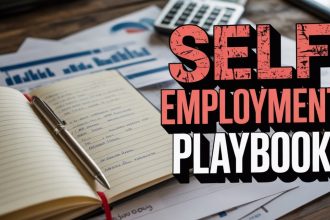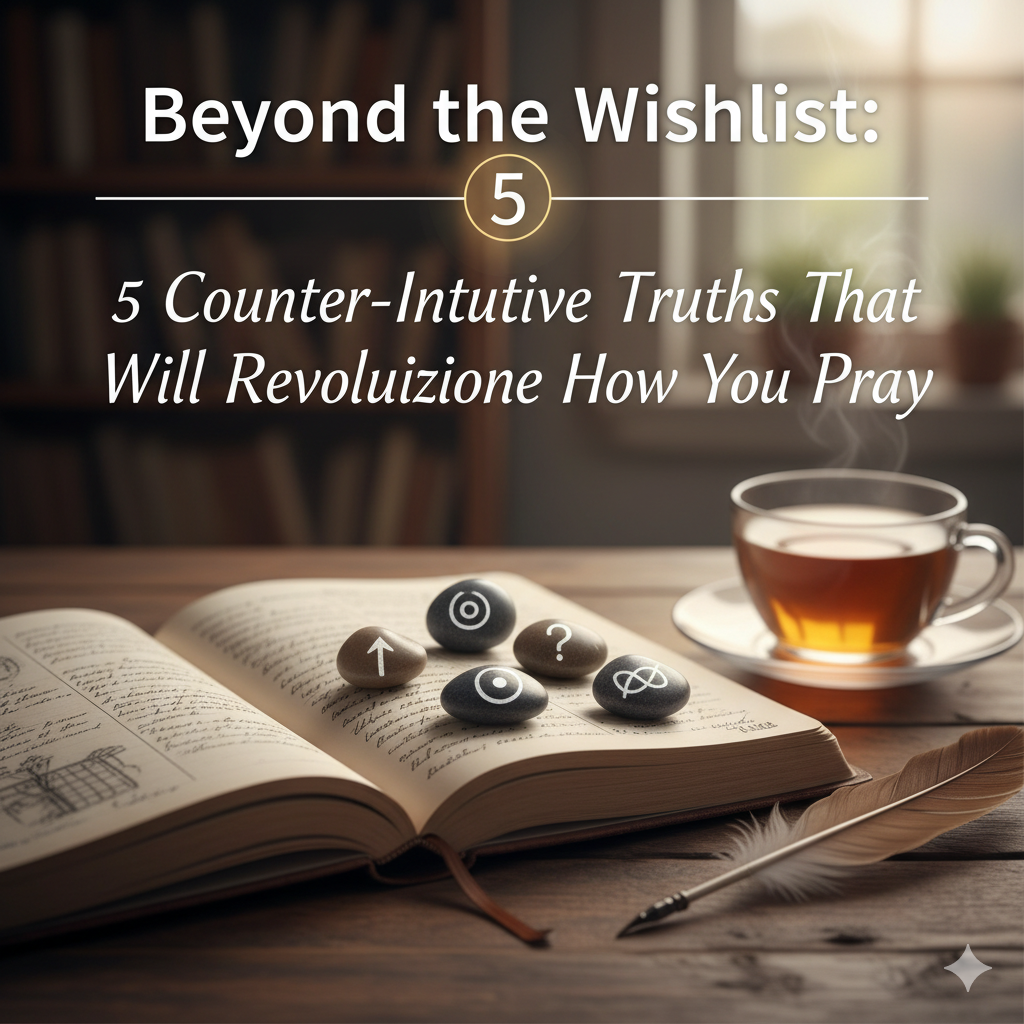It’s a familiar feeling for many. You go to church on Sunday, participate in a worship set, and listen to a well-prepared teaching. You might even feel moved or impacted. But then you leave, and by the time Tuesday rolls around, the daily grind of work, family, and a thousand small responsibilities has drained that spiritual battery back to empty. As author Dan Wilt describes, the weekly rhythm of church alone often isn’t enough to sustain us.
This can lead to a sense of being on a spiritual plateau. You’re going through the motions—attending services, maybe a small group—but not experiencing real, tangible growth. Your spiritual life feels stagnant, reactive, and disconnected from the person you are from Monday to Saturday. What if there was a way to break through? This was the question that prompted a 40-day experiment in daily, intentional prayer—a journey that revealed a depth and power far beyond what a Sunday-centric faith could offer.
Prayer Isn’t Just Passive—It’s a Power-Workout for Your Soul.
One of the first misconceptions to fall was the idea of prayer as a passive, quiet-time activity. Instead, it revealed itself as an active, strengthening discipline. The blog The Art of Manliness draws a powerful analogy: spiritual disciplines are like physical exercises that build the “muscles” of one’s character.
Practices like prayer, study, and solitude are the “barbells and push-ups” that train the soul. They are not simply about asking for things; they are about intentionally building the spiritual strength and endurance needed to face hardship. This reframes prayer from a simple list of requests into a dynamic process of personal development, where the very act of engaging with God builds the inner fortitude we need for life.
“The meaning of earthly existence is not, as we have grown used to thinking, in prosperity, but in the development of the soul.” —Alexander Solzhenitsyn
The Biggest Paradox: More Discipline Leads to More Freedom.
The modern idea of spirituality often champions a spontaneous, untethered approach, free from rules and rhythms. But a disciplined prayer life reveals a stunning paradox: structure is the pathway to true freedom.
Consider the analogy of a musician. A novice who has never practiced scales can only play a few basic tunes. But a musician who has spent thousands of hours in disciplined practice is free to improvise, create, and play an astonishing range of beautiful music. The discipline has liberated their art.
In the same way, a disciplined rhythm of daily prayer paradoxically frees us from what, as the writers at The Art of Manliness put it, is “the tyranny of the worst parts of ourselves”—our addiction to distraction, our self-centeredness, and our fluctuating feelings. By anchoring ourselves in a consistent practice, we become less a prisoner to our unbridled impulses and more capable of living with intention and peace.
“The fact of the matter is that discipline is the only way to freedom; it is the necessary context for spontaneity.” —John Guest
Your Darkest Moments Are Often Part of the Blueprint.
A common assumption is that if you are following God, things should go smoothly. Hardship, conflict, and disappointment feel like signs of failure or a wrong turn. A dedicated prayer journey reveals the opposite: these dark moments are often an integral part of the blueprint.
Reflecting on the disciples after the crucifixion, Mark Giebink notes their gut-wrenching disappointment: “We had hoped he was the Messiah.” Their path of following Jesus led directly through the darkest place imaginable, the cross. This shows that God’s ways don’t always align with our desires and He often leads us through suffering to achieve His purpose.
A powerful example of this is found in Acts 15, where a “sharp disagreement” erupted between the apostles Paul and Barnabas. This conflict didn’t end their ministry; it multiplied it. Instead of one missionary journey, two were launched as they parted ways. This reminds us that hardships are not a detour from God’s plan but a core part of the path where true spiritual leadership is forged, allowing us to guide others through the very trials that shape us.
You Don’t Need to Be Extraordinary, You Just Need to Show Up.
It’s easy to feel unqualified for a deep spiritual life. We focus on our lack of education, our imperfect past, or our inability to be as eloquent or “good” as others. But one of the most liberating truths discovered through consistent prayer is that God’s power is not contingent on our qualifications, but on our presence.
In a reflection on Acts 4:13, Heidi Landes points to the moment when the authorities were astonished by the courage of Peter and John. The key observation wasn’t their intelligence or training—in fact, the text calls them “unschooled, ordinary men.” The simple, world-changing reason for their impact was that the people “took note that these men had been with Jesus.”
This is a monumental shift in perspective. The goal is not to become “good enough” for God. The goal is simply to show up and spend time in His presence. That is what transforms an ordinary person into a vessel for extraordinary courage, boldness, and love.
You May Set Out to Change the World, But God Will Start by Changing You.
Perhaps the most profound and counter-intuitive discovery is that the primary objective of a deep prayer life is not external, but internal. We often begin with a goal to change our circumstances, fix our problems, or serve others, only to find that God’s first priority is the transformation of our own heart.
Marlie Austin shared her personal story of moving to Albania with a grand vision of serving its people. But she quickly realized that while her eyes were focused outward, God was leading her on an inward journey of “intense emotional healing, restoration and growth.”
“I wanted to save Albania, while God was most interested in saving me.” —Marlie Austin
This profound shift from an external mission to an internal overhaul is not an isolated experience; it’s a common, if unexpected, fruit of radical prayer, as another dramatic testimony powerfully illustrates. One Reddit user shared how, after 30 years of being selfish, arrogant, and a “victim of my past,” he committed to three months of daily prayer. The result was a complete personal transformation. He was freed from envy, blame, self-consciousness, and decades of regret. He went from a life of “conditional, self-serving” love to one of “real, pure love,” and experienced a supernatural peace that surpassed understanding. A financial miracle even shifted him from a “meaningless and questionable job” to a life of service. God didn’t just change his circumstances; He changed him.
The Journey Inward
Embarking on a dedicated season of prayer is less about changing our external circumstances and more about undertaking a profound, internal transformation. It is a journey inward that reshapes our character, reorders our loves, and deepens our capacity for freedom, peace, and purpose. This journey turns prayer from a simple habit into a life-altering spiritual discipline. It challenges us to reconsider prayer not as an obligation, but as a thrilling adventure into the core of who we are truly meant to be. It shifts the focus from what we can get, to who we are becoming.
It leaves one final, crucial question to ponder:
What 40-day experiment could change the next 40 years of your life?












